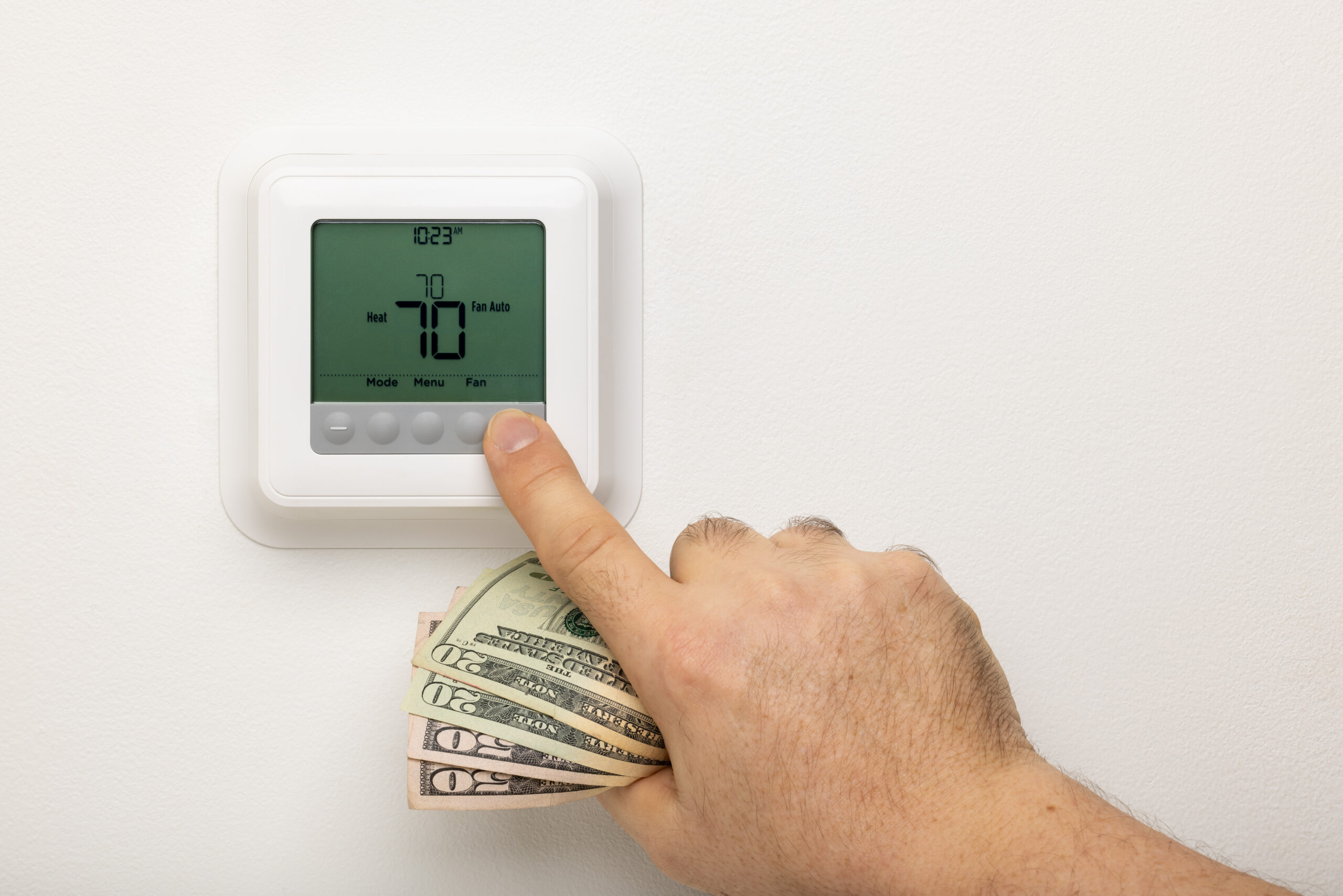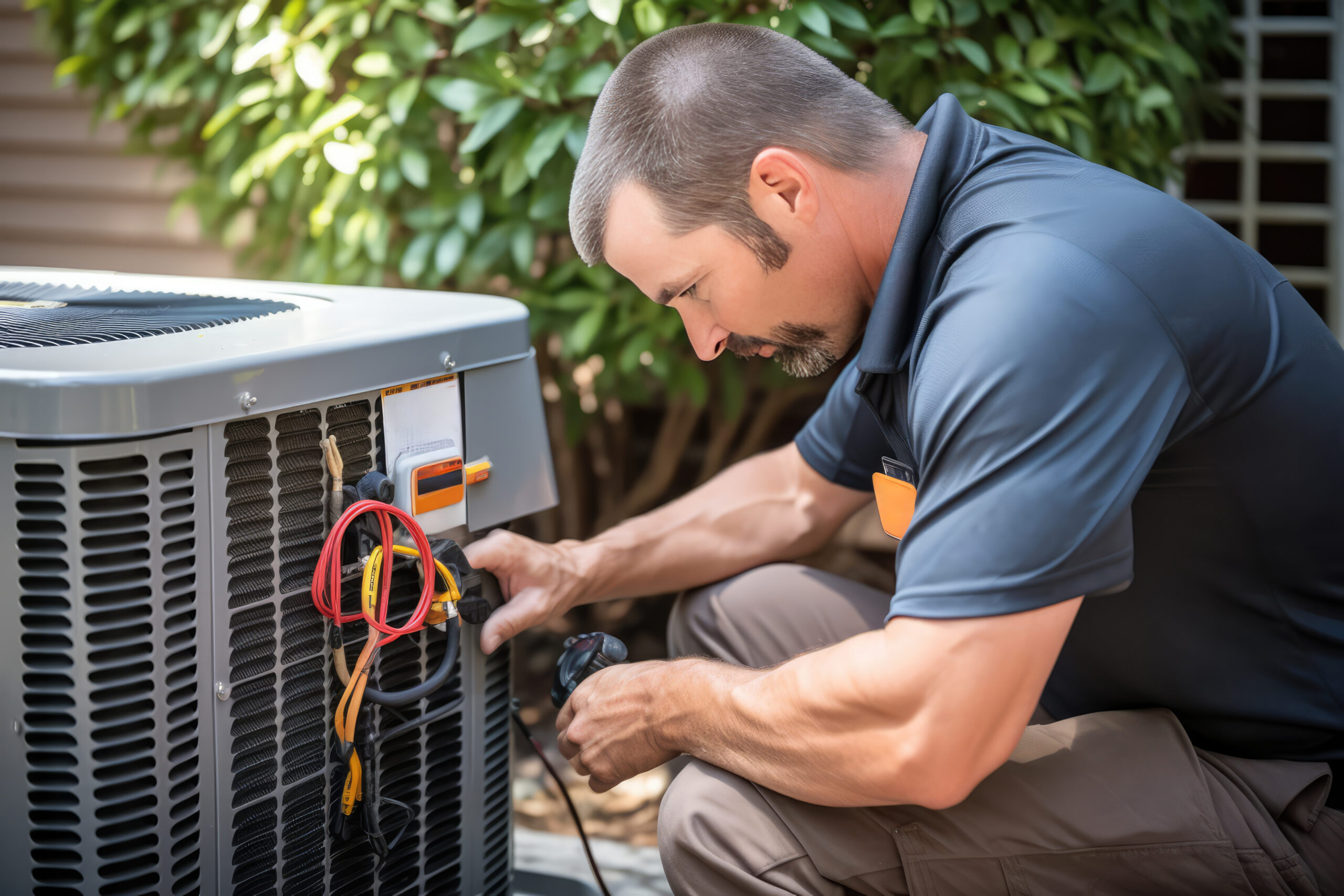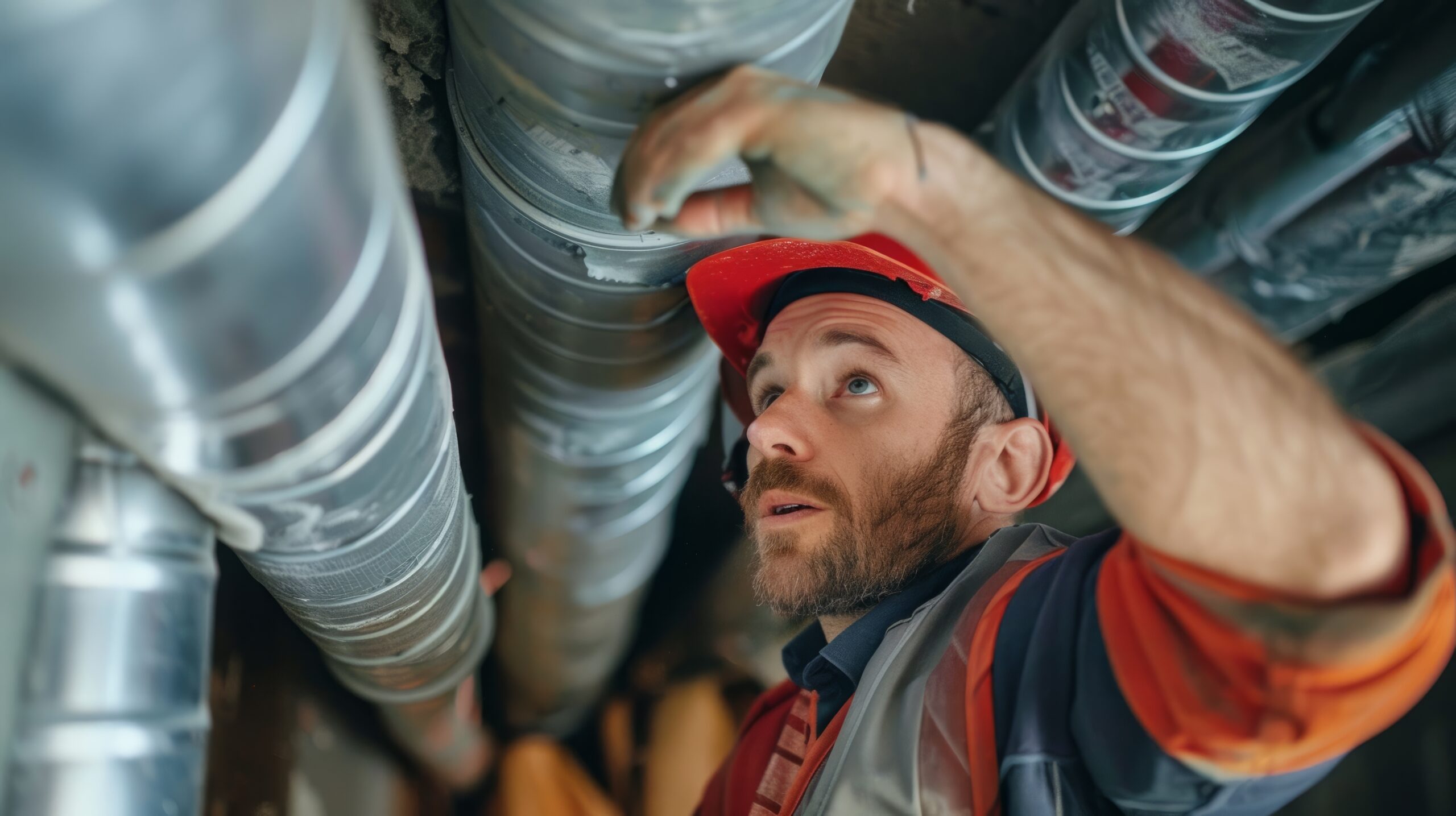
The Cost of Ignoring HVAC Maintenance
Your HVAC system is the unsung hero of your home, keeping you cool in the summer and warm in the winter. However, what happens when we take it for granted and skip regular upkeep? The truth is, neglecting HVAC preventative maintenance can lead to a cascade of problems that cost you more in the long run. From higher energy bills to the risk of costly repairs, skipping maintenance isn’t just inconvenient—it can be expensive. Higher Energy Bills One of the first signs of an HVAC system in need of maintenance is an increase in your energy bills. When your system isn’t running efficiently, it has to work harder to heat or cool your home, which consumes more energy. Dirty filters, clogged ducts, and lack of lubrication can all contribute to poor performance. Over time, these inefficiencies can cause your utility costs to skyrocket. By staying on top of residential HVAC maintenance, you ensure your system runs smoothly and keeps energy costs in check. More Frequent and Expensive Repairs Another costly result of neglecting HVAC maintenance is the increased likelihood of needing expensive repairs. Small issues, like a worn-out filter or a refrigerant leak, can turn into major problems if left unchecked. For example, a neglected system might experience a full breakdown or even cause irreversible damage to components like the compressor or condenser coils. These repairs can be costly, especially if you’re looking at the possibility of replacing major parts. Regular HVAC services can identify minor issues before they escalate, helping you avoid a hefty repair bill down the road. Shortened System Lifespan Your HVAC system isn’t something you want to replace too soon. With proper care, a well-maintained system can last between 15 and 20 years. However, neglecting maintenance can drastically shorten its lifespan. When parts aren’t cleaned, lubricated, or replaced as needed, they wear out much faster. Instead of getting the most out of your investment, you may find yourself needing a costly replacement much sooner than expected. Residential HVAC maintenance isn’t just about keeping your system running; it’s about extending its lifespan and saving you money on premature replacements. Reduced Indoor Air Quality and Health Risks Your HVAC system doesn’t just affect the temperature of your home—it also plays a major role in maintaining indoor air quality. When filters and ducts get clogged with dust, dirt, and debris, those particles are circulated throughout your home, potentially triggering allergies, asthma, or other respiratory issues. Regular maintenance, like cleaning ducts and replacing filters, can help improve the air you breathe and ensure your system is working as it should to keep your environment healthy and comfortable. Safety Concerns (For Heating Systems) If you have a heating system that relies on gas or oil, ignoring HVAC preventative maintenance can pose serious safety risks. Over time, gas connections can deteriorate, leading to gas leaks, and carbon monoxide can build up—both of which are potentially life-threatening. Scheduling regular inspections and maintenance will help ensure your heating system is safe to use and that you’re not unknowingly putting your home or family at risk. Don’t Skip HVAC Maintenance Ignoring HVAC preventative maintenance might seem like a way to save time or money, but in the end, it costs you more. From higher energy bills to the risk of dangerous breakdowns, the price of neglecting your system can be substantial. Protect your home, your wallet, and your family by staying on top of your HVAC services. Not sure where to start? PRK Services offers comprehensive residential HVAC maintenance to keep your system running efficiently and reliably all year long. Don’t wait for problems to arise—schedule a maintenance check today and avoid the hidden costs of ignoring your HVAC system!
Continue Reading
Preparing Your HVAC System for Texas Winter
With winter just around the corner, it’s essential to consider how to prepare your HVAC system for the heating season. Scheduling residential HVAC maintenance is just one way to get your system ready to maintain comfort as the temperature drops. However, HVAC preventative maintenance is only one part of what you should do. The following tips will help you prepare your HVAC system for the Texas winter weather. Schedule Professional Maintenance While you can take some steps yourself, such as replacing your air filter, professional HVAC preventative maintenance is still essential. An HVAC company has the expertise and training to identify potential problems with your unit and complete any necessary repairs to get the system in good working order before the heating season begins. Proper HVAC maintenance keeps systems running efficiently and reduces the risk of breakdowns. Insulate Your AC Lines One step you can perform yourself is insulating your AC lines. This step will help protect your AC lines from damage during cold weather. Inspect the existing insulation and remove any worn-out or damaged insulation. Clean and dry the lines before applying new foam insulation around the pipe. You may need to use tape to hold the foam in place. Make sure the entire line is covered. Cover The Unit In Fall, Not Winter Fall is a time when fallen leaves and other debris can clog the outdoor components of your HVAC system. Covering your unit during this time of year is recommended to keep this debris out. However, once the fall season is over, remove the cover as part of your residential HVAC maintenance. These units can withstand winter weather conditions. Keeping it covered increases the risk of moisture buildup and related damage. Consider A Ventilated Shelter Just because you remove the cover on your outdoor HVAC unit doesn’t mean it doesn’t deserve some protection. You may want to consider installing a ventilated shelter that protects your unit while maintaining airflow. The walls and top of this shelter should be at least three to five inches from the unit and should be removed when spring arrives. Test Your Thermostat Testing your thermostat as part of your HVAC preventative maintenance tells you two things. First, you will need to check if the thermostat turns on your furnace. It should trigger within five minutes of turning it on. Secondly, wait to see if the furnace turns off at the desired temperature. If either of these things doesn’t happen, you should call for service. Change The Filter A change in the seasons is a good time to change your air filter. This essential maintenance task maintains clean air in your home and keeps your system running efficiently, reducing the risk of breakdowns. Check your owner’s manual or ask your maintenance team how often your air filter should be replaced. Preparing your furnace for the winter months is essential to ensure it’s ready to go when the temperature drops. Residential HVAC maintenance is just part of the process. When you’re ready to schedule your HVAC preventative maintenance, contact PRK Services, Inc. to help you get ready for the heating season.
Continue Reading
End-of-Season AC Maintenance: Tips to Avoid Winter Surprises
Now that the temperatures are cooler outside, you may notice your HVAC system isn’t running as often as it was during the heat of the summer. There’s no better time than now to perform end-of-season HVAC preventative maintenance to ensure your system is in the best shape possible for the winter. Here are some valuable tips to consider and why you won’t regret doing them. Inspect Air Ducts Many homeowners neglect inspecting their HVAC air ducts because they are out of sight. Air duct damage can present when your home doesn’t cool properly and can be caused by heavy objects creating pressure on them, mold, debris, and more. When you schedule residential HVAC maintenance services, your air ducts will be inspected thoroughly so your system will run efficiently and prevent future breakdowns. Take Care Of Any Strange Noises Pay attention to your HVAC system and call a professional if you notice any unusual noises it’s making. These sounds may include buzzing, humming, hissing, or anything else out of the norm. Not only could these be causing your HVAC system to run inefficiently, but a major breakdown could be coming soon. Have a residential HVAC maintenance professional take a look to prevent unexpected issues and ensure system efficiency. Look Out For Short Cycling Short cycling occurs when your HVAC system turns off shortly after turning on and before it reaches the desired temperature on the thermostat. This cycle is indicative of a serious problem and can add significant wear and tear to your system. Short cycling could be caused by electrical problems, frozen evaporator coils, low refrigerant, or even a clogged air filter. Don’t delay in reaching out to a residential HVAC maintenance professional if you notice short cycling with your unit. PRK Services, Inc. wants to ensure your HVAC system runs efficiently all winter long. Right now, we are offering a complete fall and winter tune-up of your HVAC system for just $69 for up to 2 systems, a small investment that can give you great peace of mind and prevent larger HVAC maintenance bills months later. HVAC preventative maintenance is the key to a healthy unit, so contact us today to schedule a time for our team to come check yours out and get ahead of any issues.
Continue Reading
5 Factors Why Your AC is Blowing Warm Air
Getting your AC ready for the heat of summer is ideal so you don’t have to live in uncomfortable conditions for any amount of time. Your AC unit blowing warm air is a cause for concern, but a residential HVAC maintenance professional can likely figure out the reason why pretty quickly. Here are five of the most common reasons why your AC is blowing warm air. Dirty Air Filters Or Blocked Air Vents It’s hard to remember to change out air filters routinely, but it’s important to do so. A dirty air filter can cause evaporator coils to freeze since the cool air can’t be spread around as much as it needs to. Air vents could be blocked as well and prevent proper airflow. So if your AC is blowing warm air, replace any dirty air filters and ensure no vents are blocked. If your evaporator coils froze as a result, then try turning off your AC for several hours to allow them to thaw before using again. Faulty Thermostat A faulty thermostat is another thing a residential HVAC maintenance professional will look at. Sometimes it’s as simple as forgetting to switch your thermostat from heat to cool. Other times it simply might not be working as it should. Call for HVAC services to have your thermostat replaced if you’ve changed the batteries and are still experiencing problems. Refrigerant Leak If you hear a hissing sound when your AC is blowing warm air, your first thought might be to call for HVAC emergency repair. Most of the time this is just a refrigerant leak and is the reason why your AC is blowing warm air. When this happens, just turn off the unit and call your residential HVAC maintenance professional to repair the leak and refill the refrigerant. Electrical Problems Electrical issues require the expertise of a licensed residential HVAC maintenance professional. Once you check your breakers and discover there are no issues there, then it’s best to contact a professional since electrical problems can be very hazardous to deal with. Frozen Evaporator Coils Or Dirty Condenser Coils Frozen evaporator coils can be caused by dirty air filters and could potentially damage your AC unit. Dirty condenser coils won’t freeze, but they can make the air coming from your AC unit warmer than it should be. You could clean them yourself by removing debris and cleaning the unit with a water hose. Or if you are uncertain, feel free to reach out to a professional. PRK Services, Inc. is here to ensure your AC is operating properly at all times. Don’t hesitate to contact us if your AC is blowing warm air and we will have the problem diagnosed and fixed in no time!
Continue Reading
